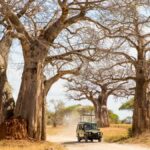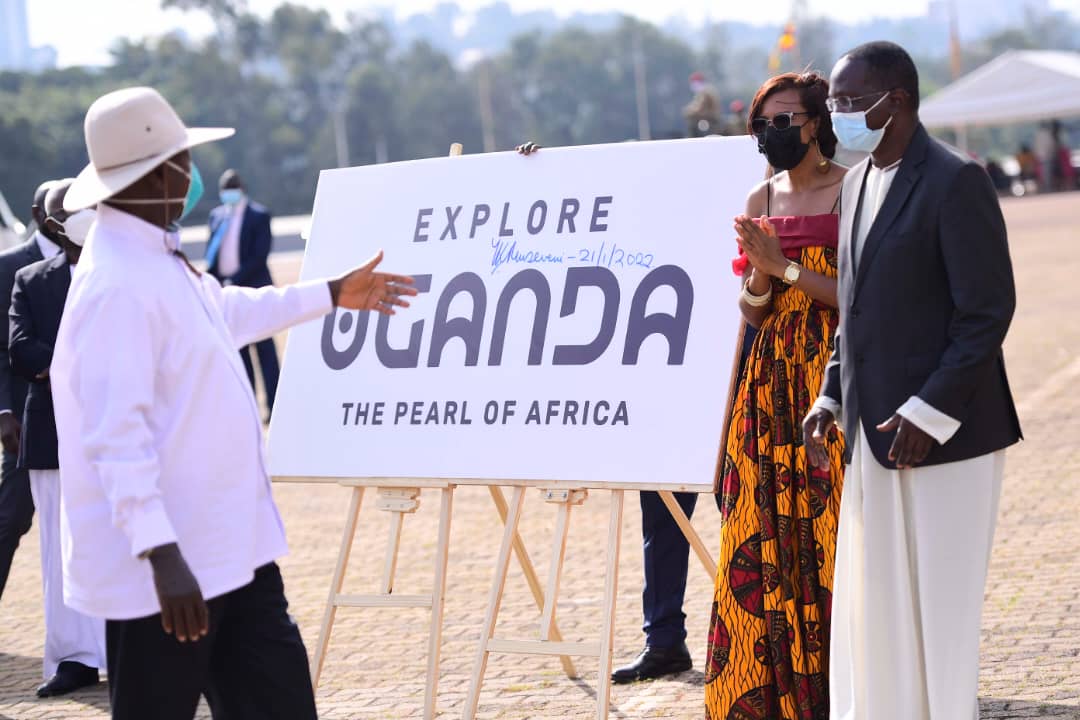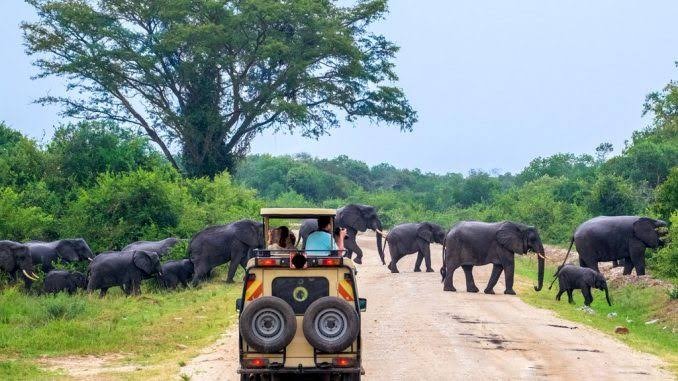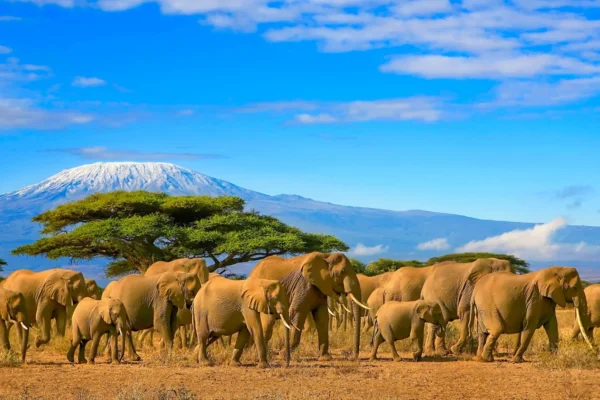
Beach & Bush: Combining a Safari with Kenya’s Coast
April 14, 2025
Top Must-Visit National Parks in Tanzania
April 16, 2025Is Uganda Safe to Visit in 2025/26? A Comprehensive Travel Safety Guide
Uganda, often celebrated as the “Pearl of Africa,” remains one of East Africa’s most captivating travel destinations. With its lush landscapes, warm-hearted people, unique wildlife, and a growing tourism infrastructure, Uganda attracts adventurers, wildlife lovers, and cultural explorers from around the globe. However, for anyone planning a trip, safety is a natural concern—especially when visiting a foreign country. If you’re wondering, “Is Uganda safe to visit in 2025/26?” this article provides a clear, comprehensive, and professional analysis of current travel safety, helping you prepare confidently for an unforgettable safari experience.
1. The Current Safety Outlook for Tourists in Uganda (2025/26)
Uganda is generally safe for tourists, especially in key tourism destinations such as national parks, reserves, and the capital city, Kampala. The government continues to invest in infrastructure, security, and tourism regulation, and travel advisories from countries like the United States, UK, Canada, and Australia often acknowledge the country’s safety in designated areas.
In 2025 and moving into 2026, Uganda remains politically stable with low crime rates in popular tourist zones. The Uganda Tourism Police—a specialized branch of the national police—works alongside tourism operators to ensure the safety of travelers. Popular locations such as Bwindi Impenetrable Forest, Murchison Falls, Queen Elizabeth National Park, Kibale Forest, and Lake Bunyonyi are considered safe for both solo travelers and groups.
While Uganda, like any country, does face challenges, the majority of visitors enjoy smooth, secure, and enriching experiences. Travelers who book with reputable tour companies like Traford Safaris Ltd benefit from experienced guides, reliable transportation, and well-organized itineraries that prioritize safety and comfort.
2. Political Stability and Government Measures for Tourist Protection
Uganda has shown consistent political stability over recent years. The government recognizes the tourism sector as a vital contributor to economic growth and is committed to ensuring a safe environment for visitors. Security efforts, particularly in national parks and near borders, have been strengthened.
In 2025/26, security forces continue to maintain a visible presence at strategic points like airports, national parks, and hotels. The Uganda People’s Defence Force (UPDF) and local police work closely with park rangers and the Uganda Wildlife Authority (UWA) to patrol wildlife areas and manage any threats.
While isolated incidents occasionally make headlines, they are rare and rarely affect tourism zones. Tourists are advised to follow guidelines provided by the Uganda Tourism Board, the Uganda Wildlife Authority, and licensed safari companies like Traford Safaris Ltd, who work in tandem with security agencies to ensure safe and seamless travel.
3. Health and Medical Safety for Travelers
Health safety is another crucial consideration. In 2025/26, Uganda continues to improve healthcare services, with clinics and hospitals available in major towns and cities. Tourists are encouraged to consult their doctor at least 6–8 weeks before travel for up-to-date vaccination requirements and medical advice.
Recommended vaccinations typically include yellow fever (mandatory), hepatitis A and B, typhoid, tetanus, and rabies in some cases. Malaria prevention is highly advised—travelers should bring antimalarial medication, use mosquito repellent, and sleep under treated nets, especially when visiting rural and forested areas.
Covid-19 regulations, while relaxed, are still monitored. As of 2025, travelers are no longer required to show proof of vaccination or negative tests, but it is recommended to carry personal hygiene items, wear a mask in crowded places, and stay updated with local health guidelines.
4. Crime Rates: Urban vs. Rural Areas
Uganda is generally safe, but as with all international destinations, it’s important to be aware of your surroundings. In cities like Kampala, Entebbe, and Jinja, petty crimes such as pickpocketing and phone snatching can occur in crowded markets or late at night.
To avoid incidents, tourists should take simple precautions:
-
Avoid displaying expensive jewelry or gadgets openly.
-
Keep valuables in hotel safes or secure day packs.
-
Use reputable taxi services or travel with trusted guides.
-
Avoid poorly lit streets after dark.
In rural areas and national parks, crime rates are significantly lower. Ugandans are known for their hospitality and friendliness, and tourists often report warm, welcoming interactions. Traveling with an experienced safari company adds another layer of security, as guides know the safest routes and are familiar with local environments.
5. Road Travel and Transport Safety in Uganda
Transportation safety is improving steadily across Uganda. The main roads connecting major towns and national parks are tarmacked and in good condition. However, rural roads can be bumpy or affected by heavy rains during the wet season.
For this reason, travelers are advised to:
-
Use 4×4 vehicles when traveling to remote areas.
-
Avoid self-driving unless familiar with local driving rules.
-
Choose transport provided by licensed tour operators like Traford Safaris Ltd.
Our professional drivers are trained to handle all terrains and follow strict safety protocols. Additionally, Traford Safaris ensures that vehicles are regularly serviced and equipped with essentials such as first aid kits, communication devices, and spare tires for remote travel.
Public transport like matatus (minibuses) and boda-bodas (motorbike taxis) should be used with caution due to inconsistent safety standards. We advise travelers to book organized tours or private transfers for the safest experience.
6. Wildlife Safety and National Park Protocols
One of the biggest draws of visiting Uganda is the chance to see wildlife in its natural habitat—from gorilla trekking in Bwindi to spotting elephants, lions, and hippos in Queen Elizabeth or Murchison Falls National Park.
Wildlife viewing is safe as long as visitors follow park rules and respect the guidance of trained rangers. The Uganda Wildlife Authority (UWA) enforces strict safety measures, including:
-
Limiting group sizes during gorilla trekking.
-
Maintaining safe distances from animals.
-
Prohibiting feeding or touching wildlife.
-
Providing armed ranger escorts in select zones.
Uganda has a strong track record of wildlife safety, and incidents involving tourists are extremely rare. When you travel with Traford Safaris Ltd, you are assured of being in expert hands, with knowledgeable guides who prioritize safety and environmental conservation.
7. Cultural Sensitivity and Local Interaction Tips
Cultural respect is an essential part of staying safe and enjoying a meaningful travel experience. Uganda is a country rich in diversity, with over 50 tribes and distinct cultural traditions. Most Ugandans are friendly, helpful, and proud to share their heritage with visitors.
Here are a few etiquette tips for 2025/26:
-
Ask before taking photos of people or local communities.
-
Dress modestly when visiting villages, religious sites, or local markets.
-
Learn a few local greetings—this is always appreciated.
-
Respect local customs, especially during traditional ceremonies or festivals.
Ugandans value politeness and humility, and visitors who show respect are warmly welcomed.
8. Adventure Activities and Safety Assurance
Uganda is not just about safaris—it’s a hub for adventure tourism. White-water rafting on the Nile in Jinja, hiking the Rwenzori Mountains, chimpanzee tracking in Kibale, and boat safaris on Lake Mburo are just a few of the options available.
Adventure tourism providers are required to follow strict safety protocols, and equipment is regularly inspected. Traford Safaris works with certified partners to ensure your activities meet international standards. Whether you’re zip-lining in Mabira Forest or canoeing on Lake Bunyonyi, your safety is always a top priority.
Travelers are encouraged to sign waivers, listen to safety briefings, wear appropriate gear, and disclose any medical conditions before engaging in high-adrenaline experiences.
Conclusion: So, Is Uganda Safe to Visit in 2025/26?
Absolutely—Uganda remains one of Africa’s most welcoming and rewarding destinations. The country continues to maintain political stability, has a growing commitment to tourism safety, and offers unparalleled wildlife and cultural encounters.
With the right preparation and a trusted tour operator like Traford Safaris Ltd by your side, you can look forward to a trip filled with wonder, beauty, and peace of mind. From the moment you land to the moment you depart, your safety, comfort, and enjoyment are our highest priorities.
If you’re planning to explore Uganda in 2025/26, let us help you create a tailor-made, secure, and unforgettable safari experience. Contact us today at info@trafordsafaris.com to start planning your journey





